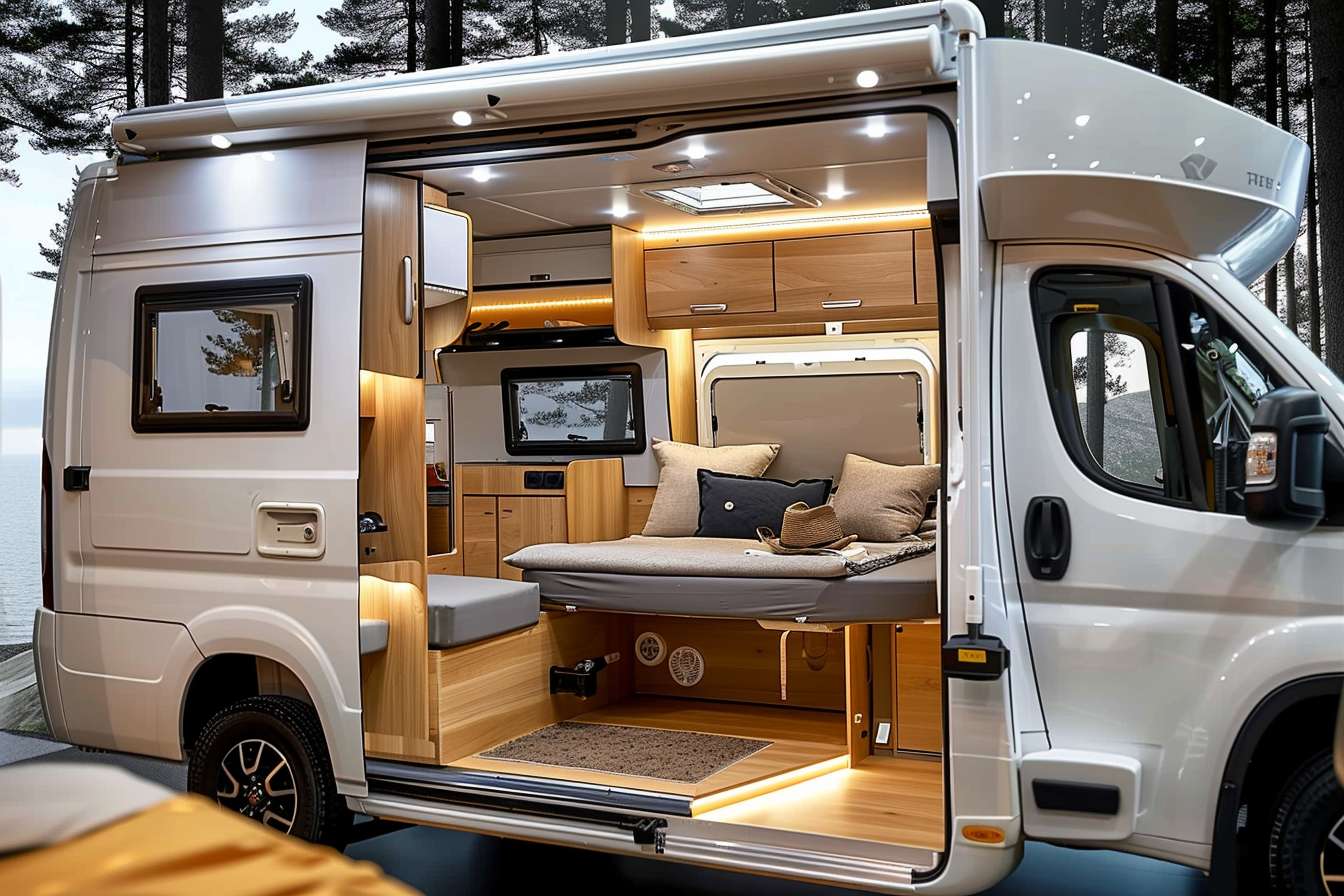Comparing Different Types of Camper Vans: Features and Benefits
The world of recreational vehicles offers a diverse range of options for outdoor enthusiasts, and camper vans have become increasingly popular for their versatility and convenience. These compact mobile homes provide the perfect blend of comfort and adventure, allowing travelers to explore the great outdoors without sacrificing essential amenities. In this article, we'll delve into the various types of camper vans, their unique features, and the benefits they offer to different kinds of travelers.

What are the main types of camper vans available?
Camper vans come in several configurations, each designed to cater to specific needs and preferences. The main types include:
-
Class B Motorhomes: These are purpose-built camper vans constructed on a van chassis, typically offering a compact living space with essential amenities.
-
Conversion Vans: Regular cargo vans that have been retrofitted with camper amenities, often customized to the owner’s specifications.
-
Pop-Top Campers: Vans with elevating roofs that provide additional headroom and sleeping space when parked.
-
High-Top Vans: Camper vans with permanently raised roofs, offering more interior space and the ability to stand up inside.
-
Micro Campers: Smaller vehicles, such as minivans or even cars, converted for camping purposes with minimal amenities.
Each type of camper van has its own set of advantages, catering to different travel styles, group sizes, and budgets.
What features can you expect in modern camper vans?
Modern camper vans are equipped with an array of features designed to enhance comfort and convenience on the road. Some common camper van features include:
-
Sleeping Areas: Ranging from convertible beds to fixed sleeping platforms.
-
Kitchenettes: Often including a sink, stove, and refrigerator for meal preparation.
-
Storage Solutions: Cleverly designed cabinets and compartments to maximize space utilization.
-
Bathroom Facilities: Some models feature compact wet baths or cassette toilets.
-
Electrical Systems: Power outlets, lighting, and sometimes solar panels for off-grid capabilities.
-
Climate Control: Heating and air conditioning systems for year-round comfort.
-
Entertainment Systems: Audio and video setups for leisure time.
-
Awnings or Outdoor Gear: For creating outdoor living spaces.
The specific features available can vary greatly depending on the type and size of the camper van, as well as the manufacturer or converter.
What are the benefits of different camper van types?
Each type of camper van offers unique benefits tailored to different travel styles and needs:
Class B Motorhomes:
-
All-in-one design with integrated systems
-
Often include full bathroom facilities
-
Easier to drive and park than larger RVs
Conversion Vans:
-
Customizable to personal preferences
-
Can be more cost-effective than factory-built options
-
Ability to choose the base vehicle
Pop-Top Campers:
-
Improved fuel efficiency due to lower profile when driving
-
Additional headroom and sleeping space when parked
-
Often more affordable than high-top models
High-Top Vans:
-
Full-time standing height inside
-
More interior space for amenities and storage
-
No need to set up or break down sleeping areas
Micro Campers:
-
Excellent fuel economy
-
Easy to maneuver in urban environments
-
Can double as a daily driver
How do camper van features compare across different models?
When comparing camper van features across different models, it’s important to consider how they align with your specific travel needs and preferences. Here’s a comparison of features commonly found in various camper van types:
| Feature | Class B Motorhome | Conversion Van | Pop-Top Camper | High-Top Van | Micro Camper |
|---|---|---|---|---|---|
| Sleeping Capacity | 2-4 | 2-4 | 2-4 | 2-3 | 1-2 |
| Bathroom | Full or Wet Bath | Portable/Cassette | Portable/Cassette | Wet Bath | Portable |
| Kitchen | Full Kitchenette | Basic to Full | Basic | Basic to Full | Minimal |
| Standing Height | Full | Varies | Limited/Expandable | Full | Limited |
| Driving Ease | Moderate | Good | Very Good | Good | Excellent |
| Off-Grid Capability | High | Moderate to High | Moderate | Moderate to High | Limited |
| Price Range | High | Moderate to High | Moderate | High | Low to Moderate |
Prices, rates, or cost estimates mentioned in this article are based on the latest available information but may change over time. Independent research is advised before making financial decisions.
What factors should you consider when choosing a camper van?
When selecting a camper van, several factors should be taken into account:
-
Travel Style: Consider how you plan to use the van – for weekend getaways, extended road trips, or full-time living.
-
Group Size: Determine how many people will typically travel in the van.
-
Budget: Factor in both the initial purchase cost and ongoing maintenance expenses.
-
Driving Comfort: Think about your comfort level with driving larger vehicles.
-
Desired Amenities: Prioritize the features that are most important to you, such as a bathroom or full kitchen.
-
Storage Needs: Assess how much gear you’ll need to carry for your adventures.
-
Season of Use: If you plan to camp year-round, ensure the van has appropriate insulation and climate control.
-
Fuel Efficiency: Consider the impact of fuel costs on your travel budget.
-
Parking and Storage: Evaluate where you’ll park the van when not in use, especially if you live in an urban area.
By carefully considering these factors, you can choose a camper van that best suits your lifestyle and travel aspirations.
In conclusion, camper vans offer a unique and flexible way to explore the world, combining transportation and accommodation in one compact package. From Class B motorhomes to micro campers, there’s a wide range of options to suit different needs and preferences. By understanding the features and benefits of various camper van types, you can make an informed decision and embark on your next adventure with confidence and comfort.




